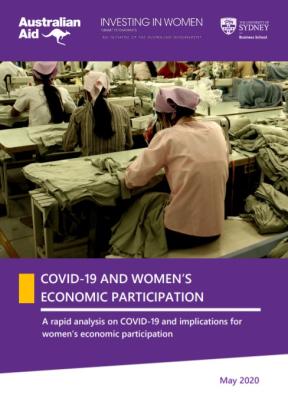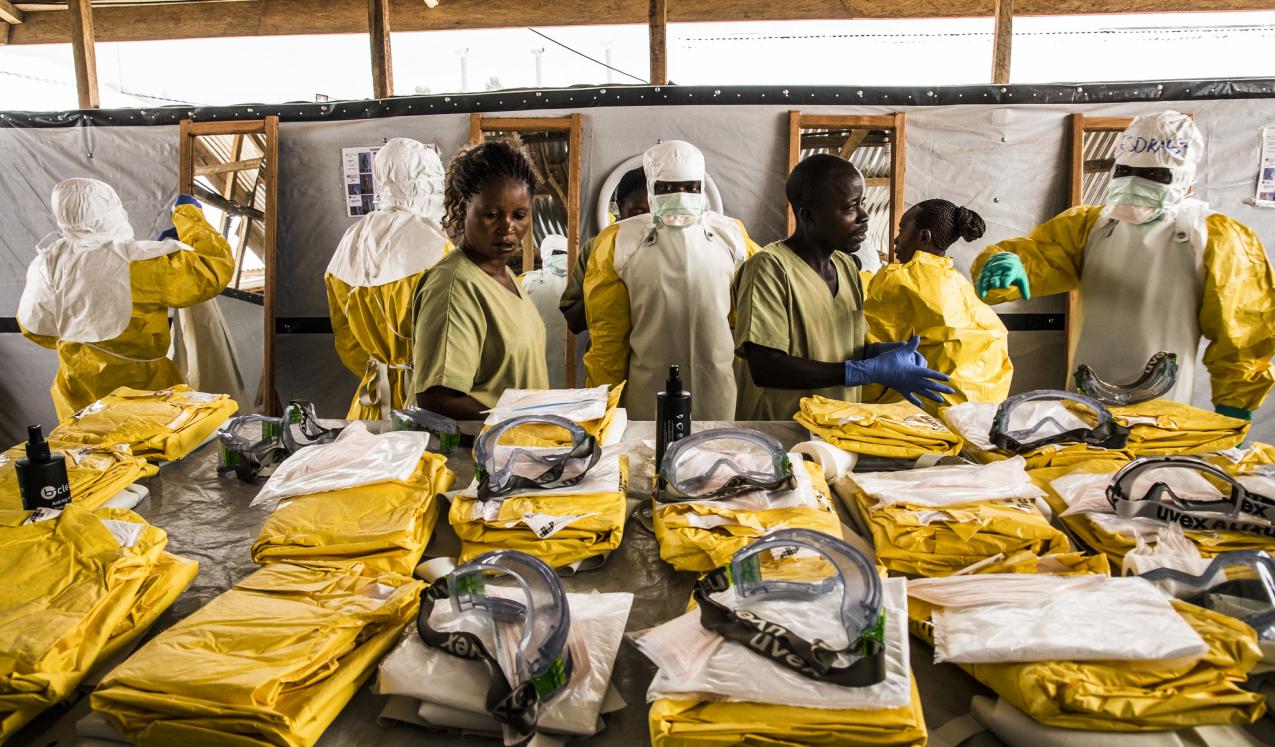
Gender norms and the coronavirus
[Jump to Covid-19 and... Cross-cutting themes | Domestic labour | Education | Gender-based violence | Intersectionality | Masculinities | Mental health | Political voice | Work/livelihoods]
There is now emerging a wealth of commentary on the gendered implications of the coronavirus (Covid-19) pandemic. We know that crises can spur new ways of behaving, sometimes leading to shifts in gender norms and underpinning sustained change towards gender equality. But with the fast spreading coronavirus pandemic many gender inequalities have already been intensified as existing discriminatory and harmful norms continue or worsen in the face of change such as violence against women, which has intensified globally under lockdowns and in the face of economic stress.
Recovery periods after crises can provide an opportunity to ‘do things differently’ and to build more equitable systems and societies. However, there is a risk that progress towards more equitable norms can slip back as the demands of recovery take precedence. Ensuring gender equality advances and preventing backsliding will require understanding the leverage points for changing different inequitable gender norms which will vary by society and issue. Cross-sectoral social and gender impact assessments that identify the strengths and vulnerabilities of different social groups, and real-time norms-monitoring surveys could be key tools.
While the most important supportive policies will vary by context, social protection is emerging world-wide as critically important in cushioning the economic effects of virus containment strategies, particularly for the poorest and most vulnerable in society including excluded women, children and people of non-binary genders.
ALIGN is currently analysing what leads to shifts in gender norms both during and after crises to enhance knowledge and innovation among our community, and we will be sharing new resources as they become available.
Highlighted below are resources produced by ALIGN and our partners relating to Covid-19 and gender norms.
If you have any research or graphics you would like to share related to this, please do get in touch with the team or post a comment in the discussion box at the bottom of the page.
Featured content
Interview
7 July 2020

Published by: ALIGN
Report
9 May 2022
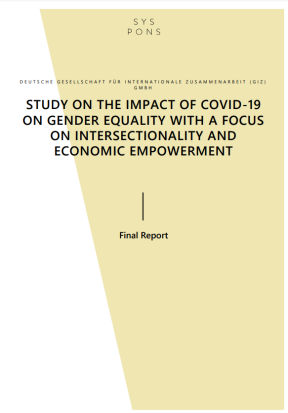
Briefing paper
27 August 2020
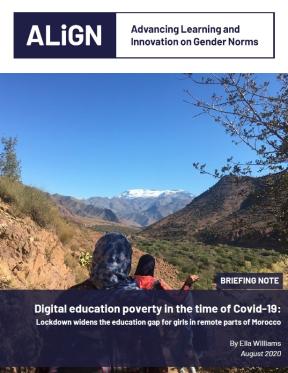
Blog
12 August 2020

Blog
21 July 2020

Annotated bibliography
1 June 2020

This annotated bibliography brings together key resources on crises and gender norms to shed light on the potential outcomes of the Covid-19 pandemic. Published by: ALIGN
Gender and Covid-19 working group
ALIGN is a partner in the gender and Covid-19 working group, a global group of researchers, health practitioners, policy actors, and advocates who share resources and expertise on topics related to gender equity, women’s empowerment, human rights, and Covid-19. The working group includes expertise ranging from the biomedical sciences to the humanities. The group meets online on the third Wednesday of every month to discuss key issues, activities, opportunities, and ideas for collaboration, and key norms relevant content will be highlighted here on the ALIGN Platform.
Visit the Gender Working Group website to find out more.
Resources by theme
[Jump to Covid-19 and... Cross-cutting themes | Domestic labour | Education | Gender-based violence | Intersectionality | Masculinities | Mental health | Political voice | Work/livelihoods]
Cross-cutting themes
Editorial
28 June 2021

Article looks at how misinformation and access issues combined with patriarchal social norms are fuelling the disparity in distribution across most states. Published by: The Guardian
Report
24 November 2020

In what countries are women and girls most exposed to the negative effects of the COVID-19 pandemic? How well can countries address these effects? To answer these questions, Data2X has shared…
Podcast
23 November 2020

This podcast event brings together global experts on gender issues to discuss the urgent need to support women. How can women’s vulnerability be considered in pandemic preparedness and response?…
Report
7 September 2020
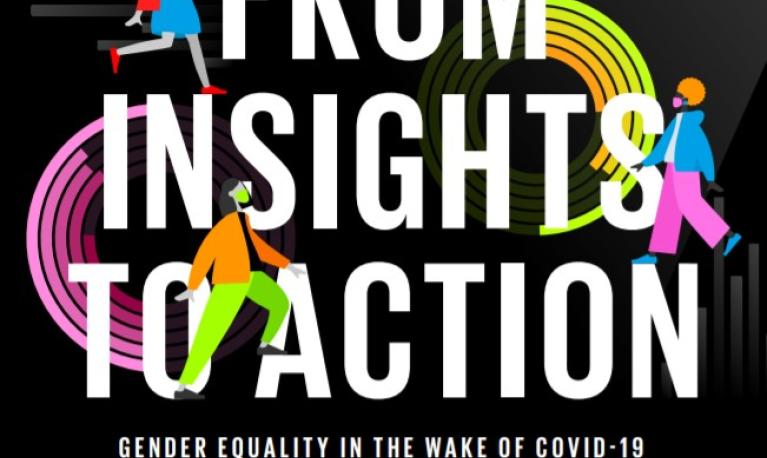
The impacts of crises are never gender-neutral, and Covid-19 is no exception. This publication summarises data, research, and policy work by UN Women’s Policy and Programme Division on the pandemic…
Briefing paper
21 July 2020
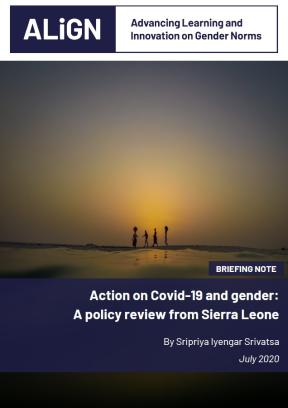
Blog
21 July 2020

Domestic labour
Covid-19 has laid bare once again the inequalities of domestic work, from working women struggling with full time jobs, providing three meals a day, supervising home education for their children and turning cleaners at night, to the millions of domestic workers and cleaners laid off across the world, some without means to even feed themselves. Whilst many men are stepping up to domestic work and child supervision, women still bear the brunt of domestic labour and the effects of the covid-19 disturbance.
News article
9 December 2020
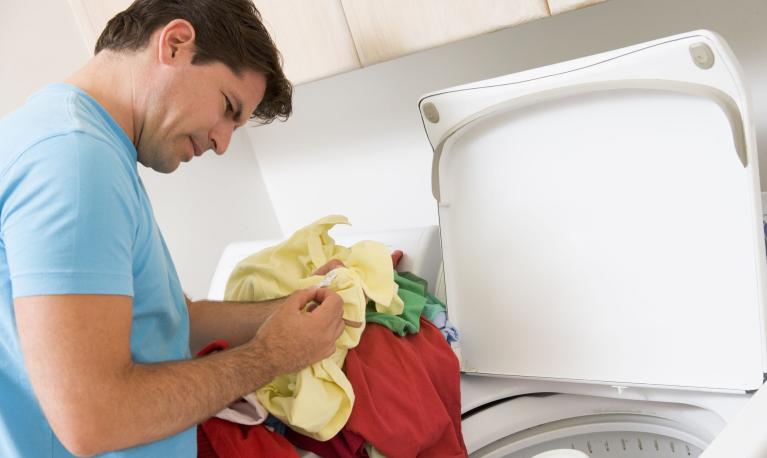
This article looks at new research which suggests the increased sharing of childcare and housework during the first UK lockdown was seemingly temporary. Published by: The Guardian
Blog
12 July 2020

Emerging public discourses around the Covid-19 crisis have characterised this pandemic as unprecedented and disruptive. This blog asks the question 'how exactly do such global disruptions of…
News article
22 July 2020

Article looking at how quibbles over who does the housework during the recent coronavirus lockdown have brought the gender politics of India's homes into the open. Published by: BBC News
News article
29 May 2020

This article explores the warning coming from campaign groups that women across Europe risk being pushed back into traditional roles. Published by: The Guardian
News article
15 April 2020

This article describes the serious plight of India’s domestic workers, laid off with no resources and often little family support, during the Covid-19 lockdown. Published by: News 18 - India
News article
12 April 2020

This article discusses potential post-pandemic positive changes in domestic labour. There are suggestions that gender equity might be one of the winners from this crisis but there are also…
Education
In most countries schools have closed as a strategy to prevent the spread of Covid-19. Evidence from previous emergencies indicates that girls, particularly adolescents, are at greater risk of not returning after protracted closures. There are also clear equity implications of some of the most common efforts to maintain schooling access.
News article
7 September 2019

With many schools closed as a result of the pandemic and girls' education being particularly badly affect, this article looks at the long-term affect this is projected to have on rates of child…
Briefing paper
27 August 2020

Blog
12 June 2020
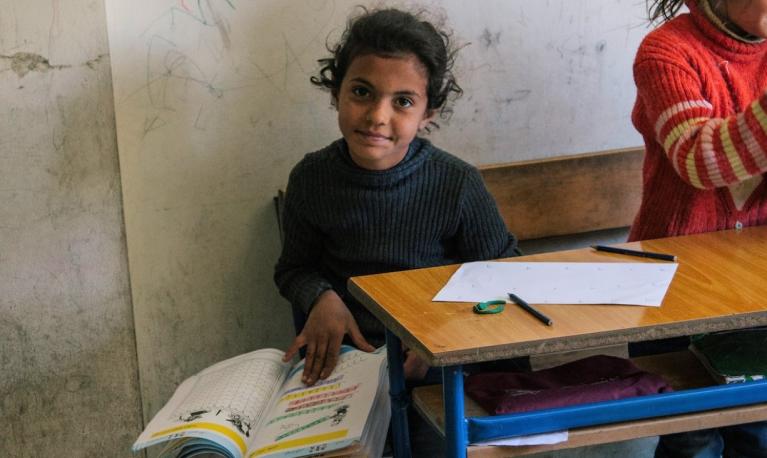
In this final blog of the "Diaries from the frontline" series, the authors examine how particularly vulnerable population groups are affected by the Covid-19 pandemic. This blog looks at refugee…
Blog
21 April 2020
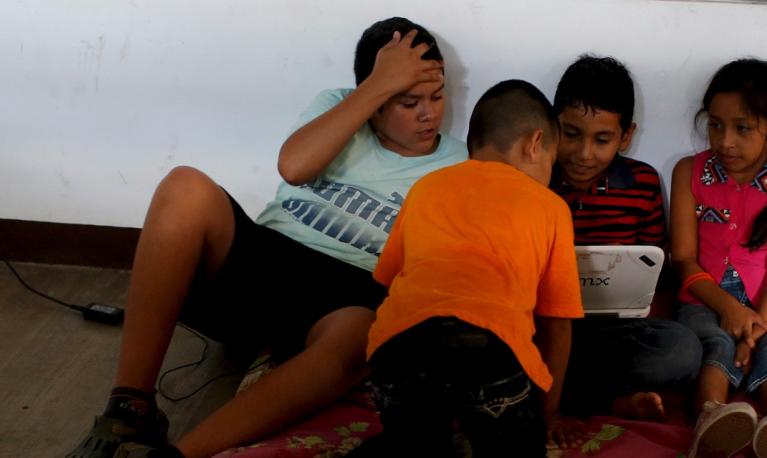
This article outlines the constraints rural indigenous children, particularly girls, face in accessing learning through Mexico’s Aprende en la Casa (Learn at Home) programme. Published by:…
Commentary
8 April 2020

This post summarises the potentially gender-differentiated effects of Covid-19 on young people’s educational opportunities and outcomes. It also flags a survey seeking responses from front-line…
Blog
2 April 2020

This article shows how one of the most commonly adopted and recommended ways of continuing education during periods of school closure is skewed in favour of better off groups, with gender…
Gender-based violence
Gender-based violence (GBV) is a global pandemic that already affects 35% of women at some point in their lifetime. Evidence shows that women, girls and other vulnerable groups are at increased risk of GBV during public health crises, including sexual violence, abuse and exploitation. Reports already suggest three-fold increases in GBV in the countries hardest hit by Covid-19, which may have different causes, such as increased household economic stress, or lack of access to support during social distancing and lockdowns. Whilst there will be an inevitable rise of domestic violence under lockdown, efforts to address the roots of violence, such as discriminatory gender norms, rather than just the symptoms are now essential.
News article
25 November 2020
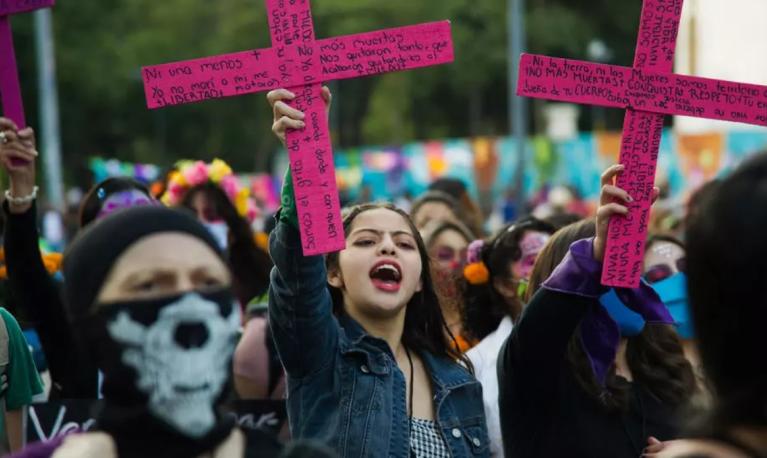
To commemorate the International Day for the Elimination of Violence Against Women, this news report reflect on the increase of violence against women driven by Covid-19. By sharing experiences…
Blog
24 November 2020

This blog summarises the findings of current research by the authors on the pathways that link pandemics with violence against women and children. With more evidence based on rigorous data analysis…
Journal article
29 September 2020
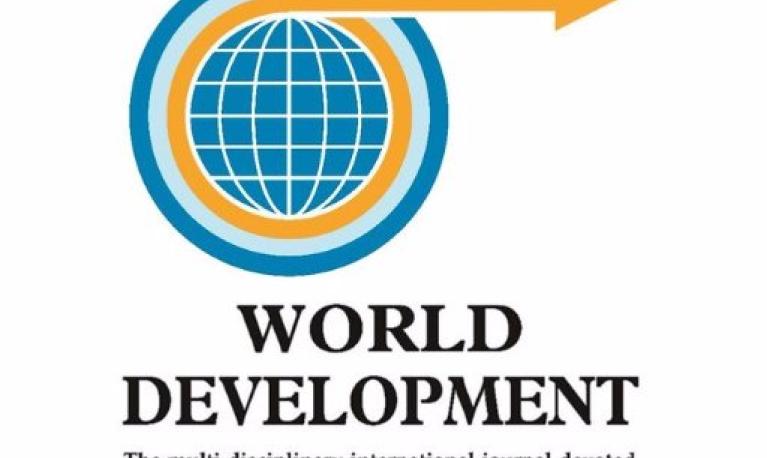
This article explores links between ‘stay-at-home’ policies in Peru and the incidence rate of reported intimate partner violence (IPV) measured through phone calls to the main Peruvian help line…
Blog
24 September 2020
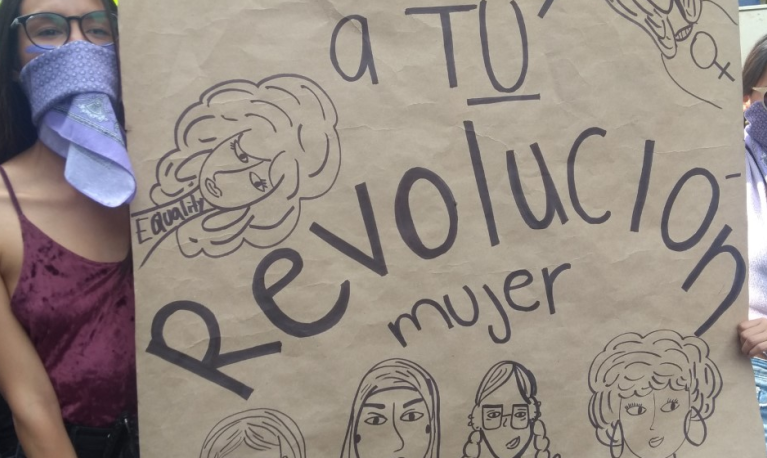
This piece notes that prior to the coronavirus outbreak, gender and domestic violence as well as feminicide rates were already on the rise in Mexico, in part due to harmful gender norms that lead…
Blog
1 September 2020
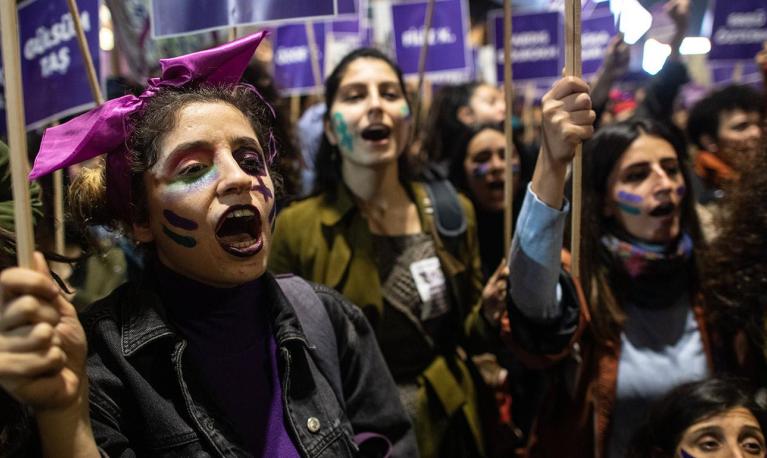
This blog examines the reasons behind several European countries (Turkey, Poland, Hungary, Bulgaria) wishing to leave the Istanbul Convention (which requires state parties to introduce laws that…
Journal article
25 August 2020

This article begins by examining the kinds of violence driven by patriarchal behaviours that affect women during Covid-19, such as minimizing or monitoring victims’ communication with friends and…
Intersectionality
It is increasingly recognised that Covid-19 often magnifies existing inequalities, with marginalised groups most at risk of contracting the disease, dying, and most affected by disease control measures. Different aspects of people’s identities and social position (such as gender, race, ethnicity, ability, socioeconomic class or location) intersect and influence their experience of Covid-19. The specifics vary but a common thread is policies and approaches designed without sufficient attention to discriminatory norms and practices, and to issues affecting particular groups. This set of resources explores these impacts, and approaches to mitigate them in more detail.
Blog
12 August 2020

Report
14 July 2020

Rising Flame initiated this research study in collaboration with Sightsavers to respond to the urgent needs of women with disabilities in India during the Covid-19 pandemic. The aim of this…
News article
13 July 2020
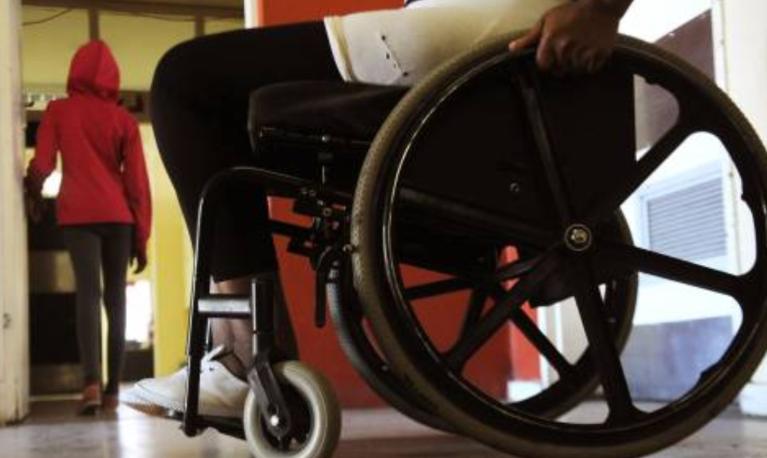
Women with disabilities across Nigeria have lamented their exclusion from intervention programmes by governments meant to cushion the effect of the Covid-19 pandemic. Published by: Sahara…
News article
6 May 2020
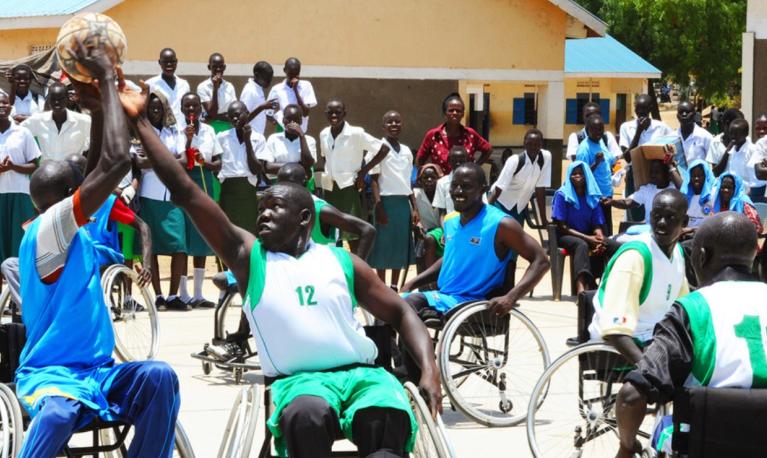
News article to accompany the launch of a UN report calling for a disability-inclusive recovery and response to the Covid-19 crisis. The report comes after UN Secretary-General, António Guterres,…
Men, boys and masculinities
The effects of Covid-19 on women’s rights, empowerment and wellbeing depends, in part, on the ways in which the norms of currently harmful masculinities adapt and respond to crisis. Harmful behaviours and attitudes already affect women’s wellbeing and any progress on changing harmful masculinities may be stalled during this pandemic. Meanwhile men’s own health and wellbeing is affected by norms of masculinity, with some suggesting that men’s norms of behaviour are influencing their proclivity to contract and die from the coronavirus. The articles and resources here focus on men and masculinities, their health and wellbeing and masculine norms which determine women and girl’s health and wellbeing.
News article
19 November 2020

Some positive changes in gender norms coming out of the pandemic in the UK being reported in this article by the Guardian. Men are spending more time with their children and businesses are seeing…
Report
14 September 2020

Podcast
3 June 2020

This podcast discusses how “gender” roles and norms impact general health and the Covid-19 pandemic. The podcast has two guest speakers both of whom are experts on how societal perceptions and…
Blog
7 May 2020

This article outlines some of the ways that masculinities have been changing among some social groups and reinforced among others during the Covid-19 crisis in Uganda. Published by: School of…
News article
30 April 2020

David Moinina Sengeh, Sierra Leone's education minister, shares a photo of himself with his 10-month-old daughter on his back as he cares for her whilst on a lockdown conference call. The minister…
Resource list
27 April 2020

The Men Engage Alliance has compiled useful resources on digital activism for equitable, compassionate and non-violent ways of being men during the Covid-19 pandemic. The collection includes…
Mental health
The mental health effects of Covid-19 (including suicide) have featured widely in the news. To date these stories have come mostly from the countries which are currently facing the largest burden of the pandemic (e.g. UK and US) as well as countries that have started emerging from it (e.g. China).
Here we aim to highlight some resources which explore the effects of the pandemic on the intersection of mental health and gender norms. Underlying this is the notion that when norms are discriminatory they may have an amplified effect on the mental health stresses caused by Covid-19. While there have been many valuable resources providing guidance and advise on how to deal with the mental health related stress caused by the pandemic on different population groups (children, adolescents, health workers, older people etc.), there has been less (to date) which directly explores how norms may be effecting mental health issues related to Covid-19, especially in low income countries - contexts where discriminatory gender norms are arguably more pronounced.
Some of this is no doubt cross-cutting and will be picked up in discussions, for instance, around intimate partner violence and health. Nevertheless it is important to highlight here some key resources from a range of different contexts which focus on the mental health effects of Covid-19 and norms.
Analysis
2 June 2020

This piece highlights the slow pace of including mental health in low and middle income countries's responses to Covid-19 measures with a focus on Ethiopia. It also highlights how access to mental…
Journal article
1 June 2020

This article shows how a mental health programme adapted during Covid-19 to support those in need through online/remote/teletherapy methods. In so doing it found that addressing structural factors …
Blog
25 May 2020

This piece highlights how human vulnerability increases during crises which can also lead to increases in suicide rates. It notes that in India causes of suicide since the pandemic hit are more…
Briefing paper
24 May 2020
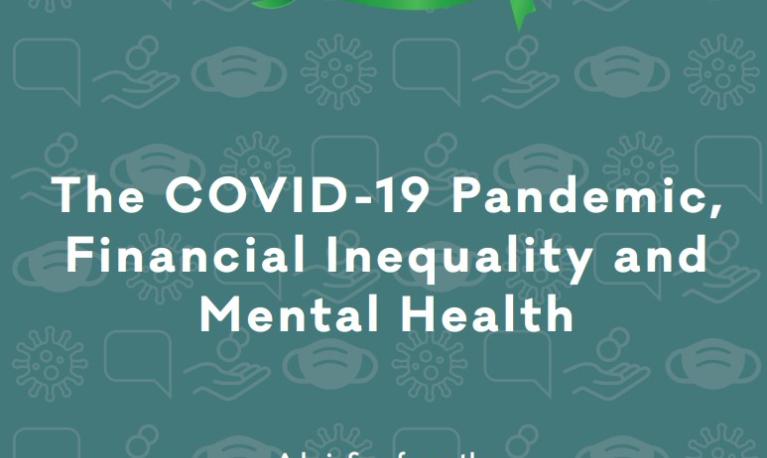
This briefing discusses the mental health effects of financial inequalities in the context of Covid-19. Drawing on evidence from “Coronavirus: Mental Health in the Pandemic” research – a UK-wide,…
Journal article
20 May 2020

This article shows how reduction in social interactions amongst adolescents during Covid-19 can have a detrimental effect on their mental health (which are also lessened, to a certain extent by…
Policy brief
13 May 2020
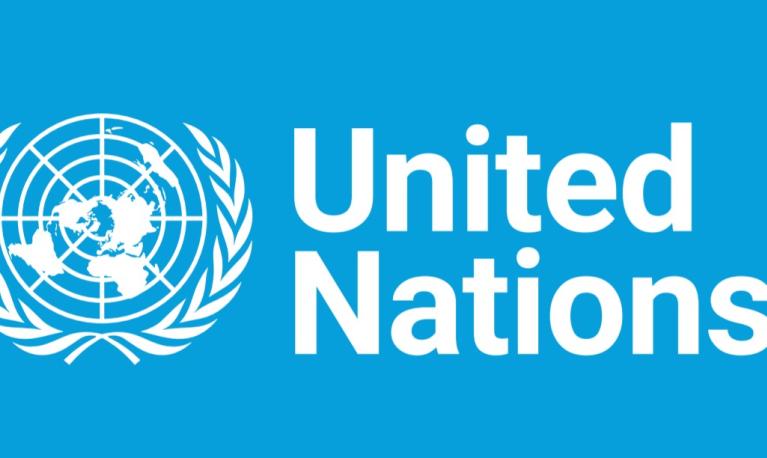
This policy brief highlights how widespread mental ill-health is, even when not in pandemic contexts and how it can be driven by a range of factors. The brief calls for urgent attention for…
Political voice and leadership
Women make up the majority of the health workforce and face the brunt of many of its social impacts but hold less than a quarter of leadership roles in global health. While some female ministers and leaders are leading aspects of the response, public health leadership lacks gender balance at the highest levels and across key ministries charged with leading the response, reflective of wider gender gaps in women's voice and leadership in policymaking and politics. Covid-19 presents an opportunity to understand and address these gaps, while challenges remain in addressing the norm-based barriers to women in decision-making given the urgency of today's crisis.
Journal article
1 August 2020

The coronavirus has spotlighted the need for effective leadership in a crisis. Leadership research in applied psychology suggests that women tend to be preferred over men as leaders during…
News article
25 September 2020
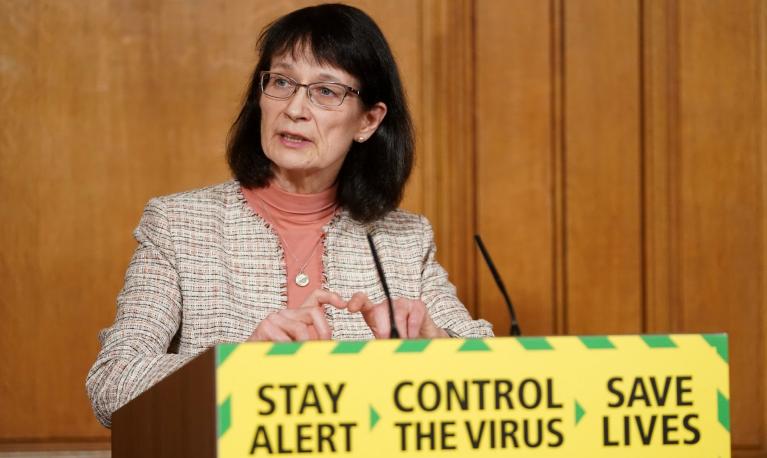
Analysis of stories across six countries - UK, US, Kenya, South Africa, Nigeria and India - found fewer than a fifth of experts quoted on the pandemic were women. Published by: The Guardian
Journal article
2 September 2020
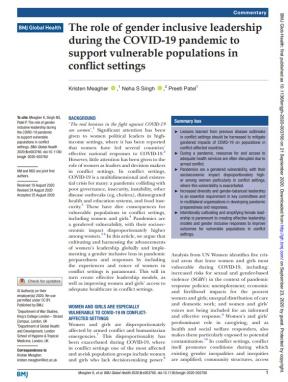
Interview
7 July 2020

Blog
26 June 2020

Countries with women in leadership have suffered six times fewer confirmed deaths from Covid-19 than countries with governments led by men. Unsurprisingly, the media has swelled with stories of…
Report
9 June 2020
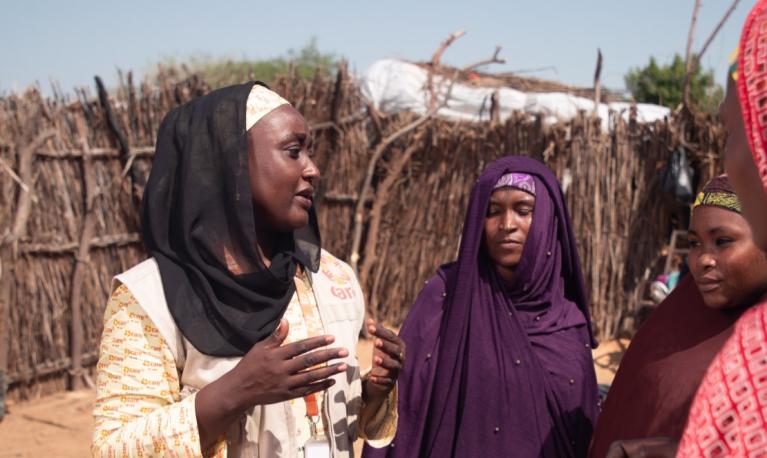
The Covid-19 crisis is disproportionately affecting women and girls. This makes it all the more important that their voices are equally included in the decision-making spaces and processes where…
Work/livelihoods
As well as putting people in particular occupations at risk, Covid-19 is having immense impacts on people’s ability to work and generate livelihoods. Given high levels of gender segregation in many sectors, these effects are often gendered. The articles in this section focus on the effects of Covid-19 on informal sector workers, a group in which women are often over-represented, and on workers in specific sectors.
Forum
23 November 2020

Brands tend to portray gender using stereotypical roles in their advertisements. In most ads, men are the primary income earners and women as the primary carers. Marketers say this is audience…
Article
15 July 2020
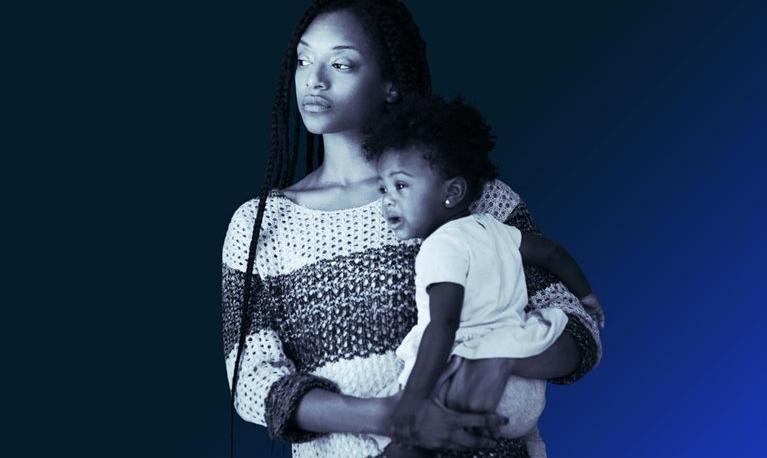
Research article looking at why gender equality is good for the economy and society, with the Covid-19 pandemic putting that truth into stark relief and raising critically important choices. …
Blog
26 July 2020

This blog looks explores ideas for longer term solutions during the recovery phase of the pandemic. Based on research from India, the blog looks at crisis management that can potentially bolster…
Policy brief
1 July 2020

This policy brief highlights the key impacts of the pandemic on women who work in the informal economy in developing countries. It underscores their vulnerability to economic stress, as this…
News article
30 June 2020
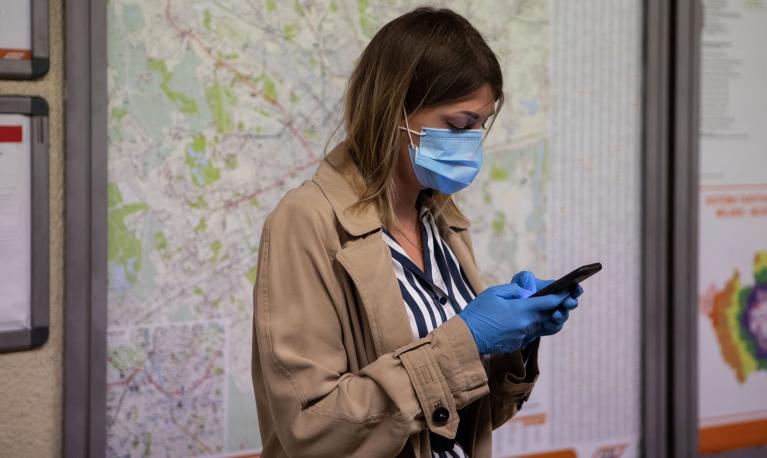
This article discusses the International Labour Organisation (ILO)'s latest statement saying the pandemic is a bigger blow to gender-equal employment than it previously feared. Published by: The…
Biblio/Lit. review
1 June 2020
